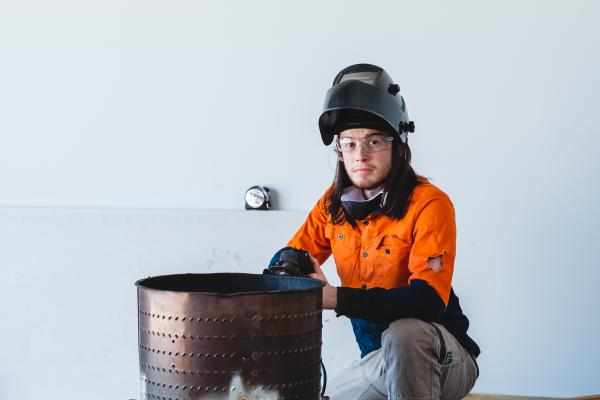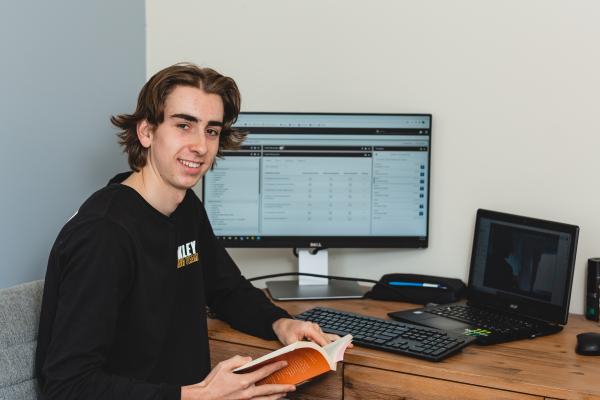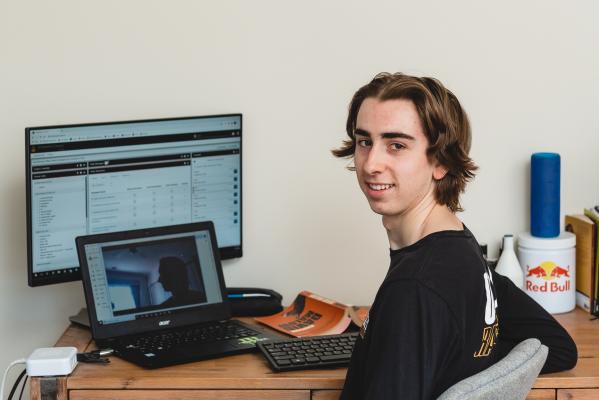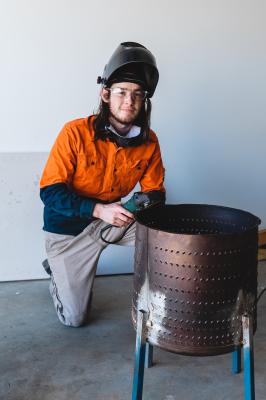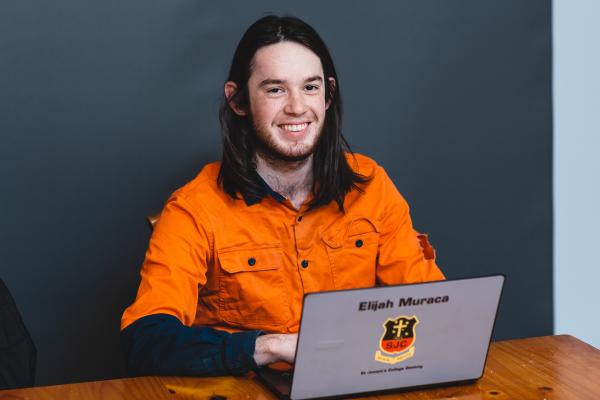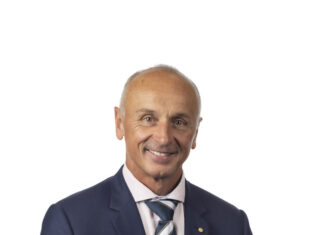COVID-19 is causing anxiety and huge practical challenges for students in their last year of school. But, as Luke Voogt discovers, some VCE and VCAL students have found a silver lining amid the uncertainty.
Geelong year 12 students Will Cranny, Elijah Muraca and Tamasyn Shannon have something in common – they are all finding positives in remote learning.
“It’s definitely thrown a bit of a spanner in the works but I actually reckon I’ve come out better from it,” Will said.
“I’ve had to motivate myself.”
The 18-year-old St Joseph’s student, from Waurn Ponds, has enjoyed setting his own schedule and saving time not commuting to school.
“Taking the bus every day adds up,” he said.
“I’ve found a pretty good set up and routine at home. You’ve got a lot more time in your day.”
He wants to study land surveying next year and reckons the independent-learning skills he has developed from remote learning will help at university.
“I’m not going to be one of those kids who’s at the top of ATAR ranks but I think I’ve set myself up alright,” he said.
“It’s given a lot of people an opportunity to learn some different skills and that’s actually a benefit that’s come out of it.”
He acknowledged remote learning was causing anxiety for many students and had disadvantaged those needing “an extra leg up from teachers”.
For him, long periods in front of the computer had taken its toll mentally, but weekend mountain biking helped him escape, he said.
Fellow St Joseph’s year 12 student Elijah has also managed to get out of home in his pursuit of a boilermaker apprenticeship next year.
The Wandana Heights VCAL student chose the career path after a work experience trip to a local manufacturer in year 11.
“The workers were really welcoming,” he said.
“They didn’t sugar-coat it – they told me the downsides but also how much they’d enjoyed it over the years.”
Elijah has been able to continue his current work placement with a different boiler maker under stage 3 restrictions, as a place of work.
“We all have to wear face masks and follow safety precautions,” the 18-year-old said.
The biggest challenge for Elijah has been the lack of practical work in his Certificate II in Engineering at Gordon TAFE.
But the institution had plans to conduct practical training in small groups soon, he explained.
“I think I’m actually going to start it next week,” he said.
“There’s a lot of prac stuff that we need to tick off. Most of the boys going into trades have had a lot of stuff called off.
“It’s been tough on everyone. Parents have had a lot they’ve had to get through too.
“We’ve missed a lot of experiences we were meant to have. I know that a lot of people are really torn by it but I’ve been lucky.”
Limited access to practical work has also been challenging for Geelong High School student Tamasyn Shannon.
The central Geelong local split her year 12 studies into two years to make VCE less stressful after dealing with bullying last year.
“I found it easier to focus with less subjects rather than cram six into a year,” the 18-year-old said.
The theatre-loving student hopes to become a drama teacher, or “anything in the performing arts”.
She said singing over Zoom was very difficult, without her music teacher there to correct her stance or being able to hear her clearly online.
Remote learning also limited the opportunities to ask questions of teachers and have class discussions, she said.
But she had still been able to participate a small onstage assessment for her drama class when Victorian COVID-19 restrictions eased temporarily.
Her drama teacher had also given up her own time to meet students face-to-face to check their progress and for students to practice their monologues, she said.
The teacher met with two students at a time with masks on in a large room for safety, Tamasyn explained.
And Tamasyn has found remote learning beneficial due to her mild social anxiety.
“It can get very overwhelming for me sometimes being around people,” she said.
“You don’t have to go to those classes all the time and you can kind of work it around your own schedule.”
Deakin University senior education lecturer Brendan Hyde said a lack of practical work and additional anxiety from the unknown were difficult challenges for students.
“I’m imagining they’re still quite concerned with how they’re going to fare amongst all this,” Dr Hyde said.
“While remote learning has advantages, it’s not a substitute for the interaction that goes on in the classroom between students and teachers.”
But students were developing resilience and self-management skills amid the pandemic, Dr Hyde said.
“I think for the vast majority their study skills may even have improved in some instances. In the worry of getting the ATAR we’re sort of missing [that].
“While it’s been a bit harrowing for students, it’s certainly developed those independent study skills that you need for university.
“I think it also makes them more employable in that sense.”
Dr Hyde welcomed the state government’s recently-announced reforms to ATAR rankings to take into account individual circumstances such as school closures, extra family responsibilities, remote learning challenges and mental health impacts.
“I would be hopeful that it’s going to bring some sort of easing of anxiety.”


